If you're anything of a sci-fi fan, you may have heard the term "precogs" before. There's even a decent possibility you'll think of this when you read that word...
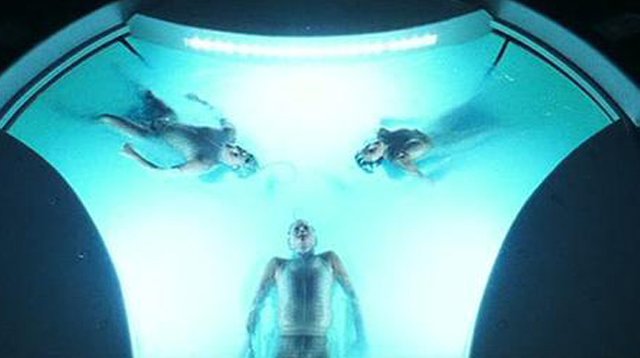
That's the tank with the three "precogs" from the 2002 cinematic adaptation of Philip K. Dick's story by the same name, "The Minority Report". If you're not a sci-fi fan and you've never heard of this movie or precogs, fear not, I'm going to share some interesting stuff that just might make you a nerd like me!
As a bit of a background to the discussion about precogs for those who don't know, I'll start with a rather commonly discussed case relating to it. To start, check out this handsome gent...
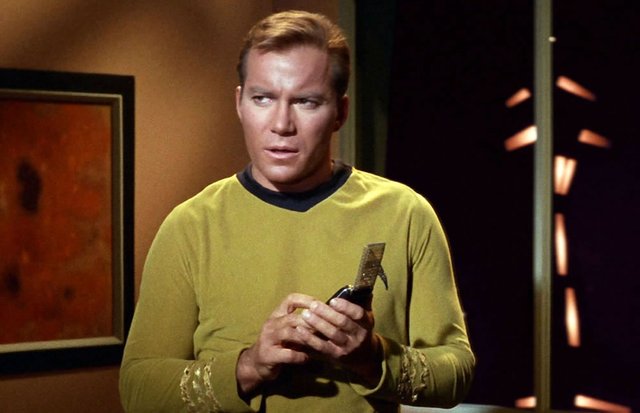
I know, I know. Who doesn't love William Shatner, right? But I'm not talking about William Shatner or the character he's portraying here. (BTW, that's James Tiberius Kirk, Captain of the U.S.S. Enterprise, in case you didn't know.) No, what I'm showing you here is the device our fine Captain is holding. It's a small device he would use to communicate with the crew of his ship when he was away from it. It, ironically, operated very much like a push-to-talk cell phone (which was a big rage for about 6 weeks). It probably doesn't sound that interesting to us now since we've had cell phones for a while now. I mean, pretty much EVERYONE has one now. But consider when this show originally aired. The show started in September of 1966 and it was the brainchild of Ray Bradbury.

Think about how insane and forward-thinking it would have been to picture a pocket-sized handheld device that could be used with the push of a button to communicate with someone like they would a telephone. I'll be honest, I don't know if cordless phones even existed yet, but even if they did, the technological leap from even a cordless land-line phone probably seemed somewhat imaginary. I mean, honestly, what would have been the best working example of something like the Star Trek Communicator?
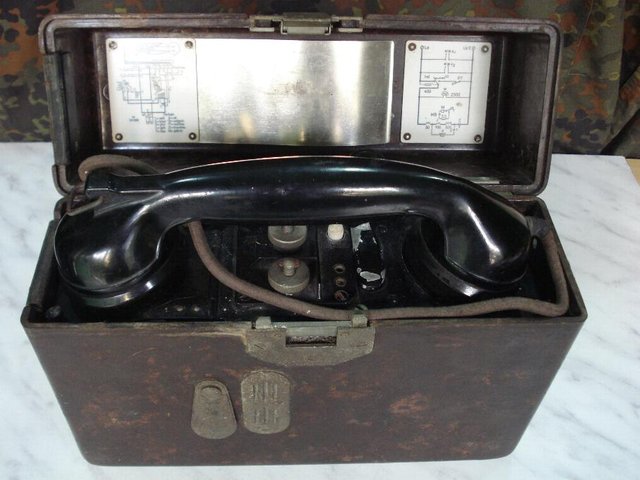
Yeah, even though that WWII German military field phone was developed 20+ years earlier, it was far from something the average person would carry around.
However, in time we ended up with things like this...

So the question arises, did Ray Bradbury precognitively predict the use of cellular phones or did cellular phones come about because of Ray Bradbury's vision? Is there even really a difference between those two? As I've expressed previously, I'm a big fan of Philip K. Dick. I'm a fan not only because of his dystopian science fiction, but because he developed a whole philosophy about science fiction.

Dick's opinion of the "theory" was that science fiction authors themselves were precogs. He didn't have any direct explanation for it, but he wrote and spoke about it pretty often. He even has a short story, Waterspider, that directly relates to the concept that the science fiction author Poul Anderson was a precog and a group of scientists/astrophysicists needed to send a crew back in time to bring him forward so he could solve a problem they were having with a design he described in one of his stories. Once I read this story by Dick, I couldn't help but desire to read more classic science fiction to see if this could really be a thing. Let me just say, I was not disappointed.
Now where to begin... How about the land of Oz? I know, you're probably reading me talking about science fiction, Star Trek, cellphones and sitting there all...
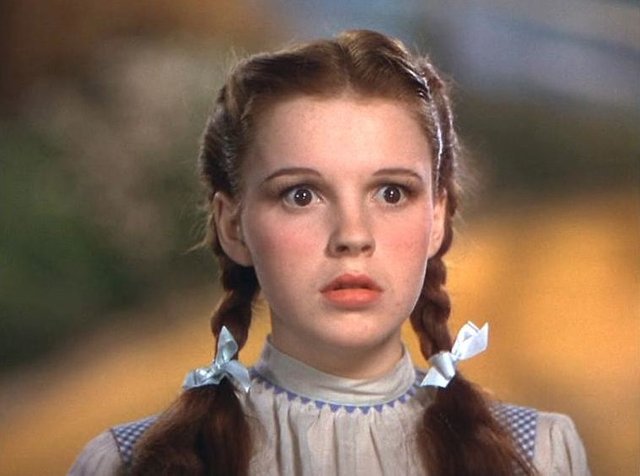
"What does Oz have to do with science fiction?" Well, it's not really Oz that has to do with science fiction (since it is more about fantasy), but it's really to do with this guy...
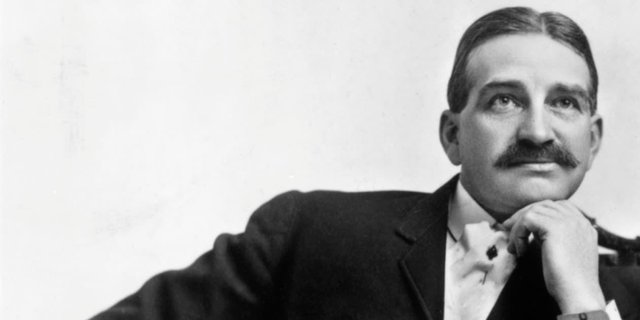
His name is L. (Lyman) Frank Baum, and he's the guy who wrote the Oz books. Yes, I said Oz books, because in actuality there is a set of 14 stories written for children that comprise the whole story of the adventures in Oz. But again, this isn't about Dorothy and Toto and their friends and adventures. It's about another short story written by Mr. Baum...
In 1901, Lyman Frank Baum released "an electrical fairytale" titled "The Master Key.
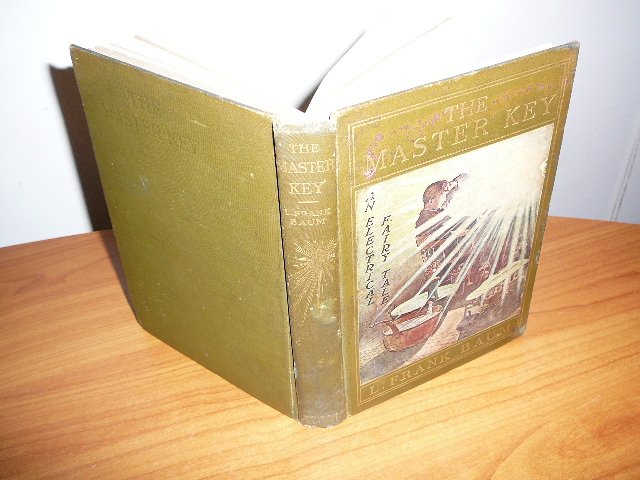
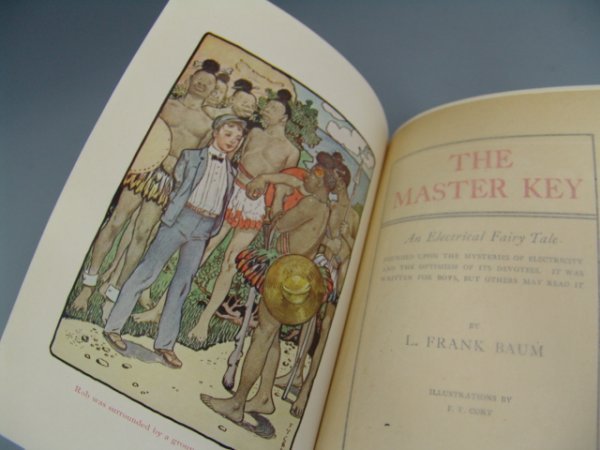
"The Master Key" was again a story written for children. It's a story about a young boy (with the same name as me, Rob) who liked to play with his home's electrical wiring (how many people had fully wired homes in 1901?). As he was playing around, he accidentally summons a demon from the wires. (It's definitely a strange way to start a story, but just wait...) As Rob starts chatting with the demon he's called forth, the demon/devil starts acting something akin to a genie out of a lamp. He tells Rob he's going to bestow three gifts on him. I don't recall the exact order, but the three items are 1) a metal tube that shoots sparks out the end of it, 2) a pocket cigar case that allows him to see what's going anywhere else in the world when he opens it, and 3) a watch that allows him to levitate and travel around the world. The really interesting thing about these gifts is how similar they sounded to items in our modern world.
Item 1, the metal tube that shoots sparks, is something used by Rob to defend himself from people trying to be aggressive to him. Without having to try to hard, the only thing I was able to picture was something like this...

I don't think it's too hard to see the connection there. As to item 2, the cigar case that could view what's going on around the world, I couldn't not picture this...

I mean, seriously, the image even shows the app saying "LIVE" in big letters! In other words, you can use this small pocket-sized device to see what's going on in the world at that moment whenever you want! It struck me as so insane when I thought about the fact that this story is a hundred and fifteen years old, and he was already talking about two pieces of technology that only really came about in the last twenty or so years. But the most insane part of it all, is that we don't have a device like the third item. Baum described a watch that could make Rob levitate and move around the world. Baum discusses how the watch uses the magnetic rings of the Earth's atmosphere to move around. Sounds pretty crazy if you ask me, but then again, it wasn't until two years later that these guys showed us men could take to the air under power...
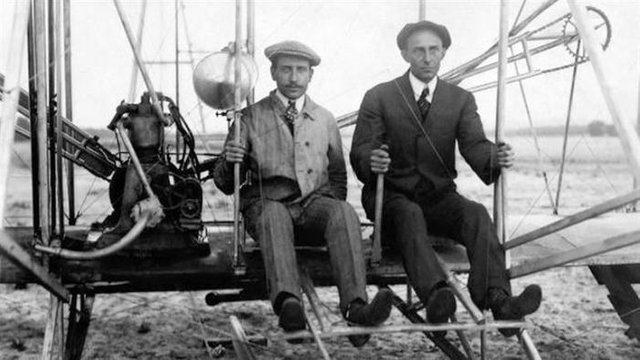
and about 110 years later until we were able to keep track of that taking to the air on our wrists...

So we come back to the same question. Did L. Frank Baum predict these pieces of tech, or were they developed based on the inspiration of his ideas? You could say there would have been a need for these things regardless so they would have been developed, but the ability for some classic science fiction authors to see how the world would change is remarkable. The scariest part is to consider what other people have written. Bradbury, Dick and Baum are only three names among a very large crowd. Poul Anderson was only mentioned in passing and we didn't even bring up authors like Asimov, Forster, Herbert, Verne, Wells, Huxley, Orwell and Vonnegut as well as many, many others. A great many authors have written many stories about a dystopian future with all kinds of strange kinds of progress being made by us mere men. But beyond that, it continues. People still write science fiction. The coolest part about it is that as our technology changes, the ways writers imagine it being used changes as well.

This guy, for instance, is one of (probably my number one) favorite new author. Cory Doctorow not only writes science fiction, he writes ethical science fiction that often deals with the modern-day issues of software freedom, privacy and copyleft. He and his stories have been very inspirational to me and my desire to be a positive force for the future of technological freedoms. Not simply for my sake, but for the sake of the future generations. As the world gets smaller and people are able to communicate across the world and share ideas, we need to keep the lines open and free instead of stifled and censored.
So yeah, science fiction is pretty cool, and it's so much more than just flying through space pretending to shoot laser blasters (but who didn't want to be a storm trooper at least once). Science fiction can help us dream of a better world and it can help us look at where we are and gauge whether we've been working to make it better... or not. So let's keep dreaming about how to make it better, even if it doesn't make any sense to us right now.
Great article. It got my "wheels spinning", as they say.
Downvoting a post can decrease pending rewards and make it less visible. Common reasons:
Submit
Thanks! Glad I could share the struggle.
Downvoting a post can decrease pending rewards and make it less visible. Common reasons:
Submit
First thing I thought about after stumbling onto Steemit, wow, looks like that system they use in "Down & out in Magic Kingdom". Its called Whuffie. I am surprised that people didn't see the connection. Or maybe it was in White Paper? I dunno, didn't read it. (Also, this is my first comment here).
Downvoting a post can decrease pending rewards and make it less visible. Common reasons:
Submit
Cool! Welcome aboard. I've yet to read "Down & Out in the Magic Kingdom" but it's definitely high on my queue. I started "Content" recently but haven't had a lot of time devoted to it yet.
Edit: Now that I think about it, the rep system kind of functions like the little voting pods in "The Makers" as well... hiding the things that get flagged too often. Good catch!
Downvoting a post can decrease pending rewards and make it less visible. Common reasons:
Submit
keep it up robsteady!
Downvoting a post can decrease pending rewards and make it less visible. Common reasons:
Submit